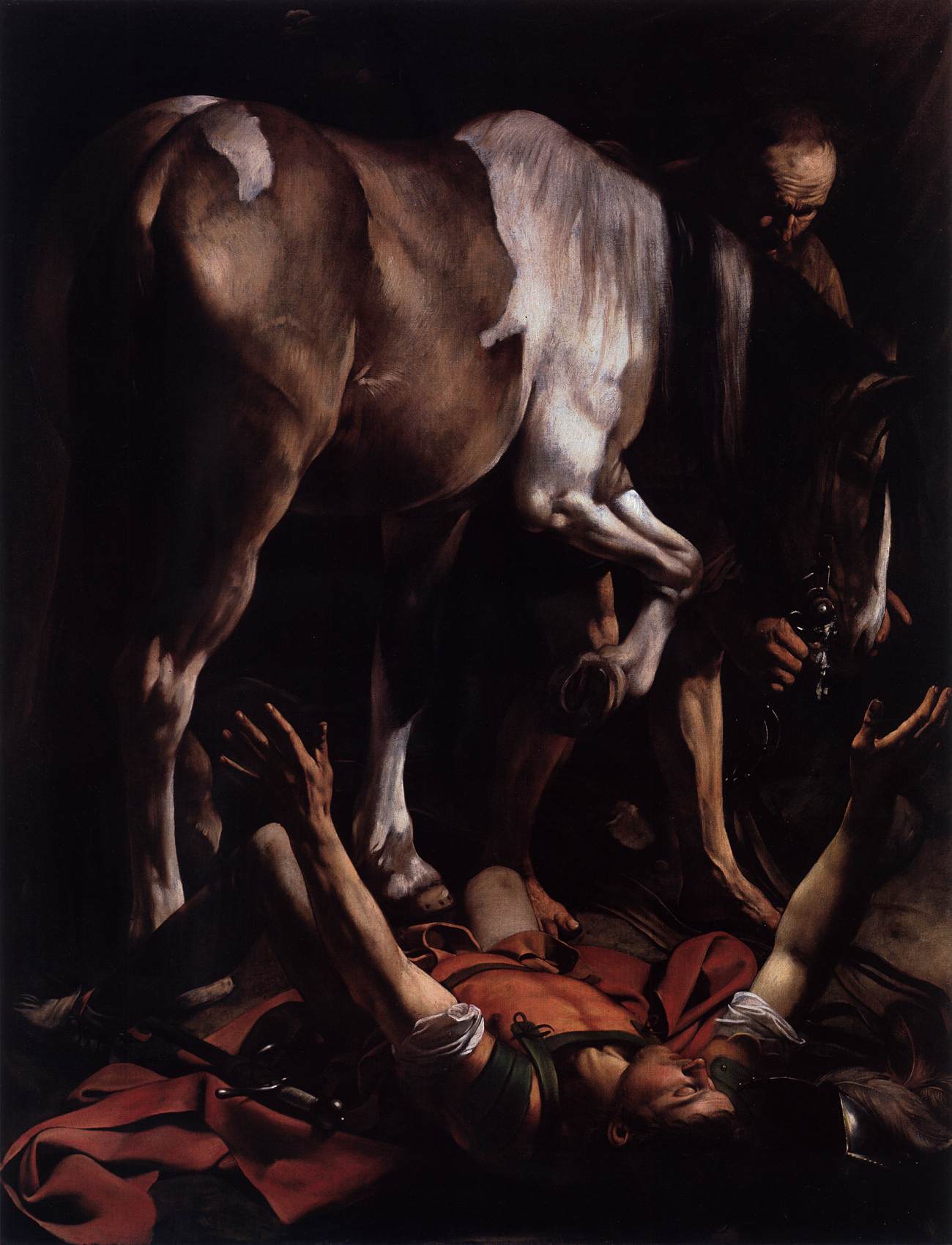Description
Caravaggio's painting "The Conversion on the Way to Damascus" is an Italian Baroque masterpiece depicting the moment Saint Paul converted to Christianity after being blinded by a divine light on his way to Damascus.
Caravaggio's artistic style is characterized by his use of the chiaroscuro technique, which consists of strongly contrasting light and dark to create a dramatic and realistic effect. In this painting, the artist masterfully uses this technique, creating a sense of depth and movement in the scene.
The composition of the work is also notable, since Caravaggio uses a very close approach to the characters, which creates a feeling of intimacy and empathy with the viewer. The figure of Saint Paul, in particular, is depicted in a very realistic manner, with an expression of surprise and wonder on his face.
The color in the painting is another interesting aspect, since Caravaggio uses a palette of dark and earthy tones, which contrast with the bright light that illuminates the scene. This use of color helps create a sense of drama and mystery in the work.
The story behind the painting is also fascinating, as Caravaggio is believed to have painted it while in prison for murder. Despite his difficult situation, the artist managed to create a masterpiece that has been admired and studied for centuries.
Finally, there are little-known aspects of the painting that are also interesting, such as the presence of a dog in the scene, which is believed to symbolize fidelity and loyalty. Furthermore, the figure of Saint Paul is depicted with one leg shorter than the other, suggesting that the artist was trying to make a realistic representation of the human figure.
In short, Caravaggio's "The Conversion on the Way to Damascus" is a stunning work of art that combines technique, composition, color, and a fascinating story to create a unique visual and emotional experience for the viewer.

